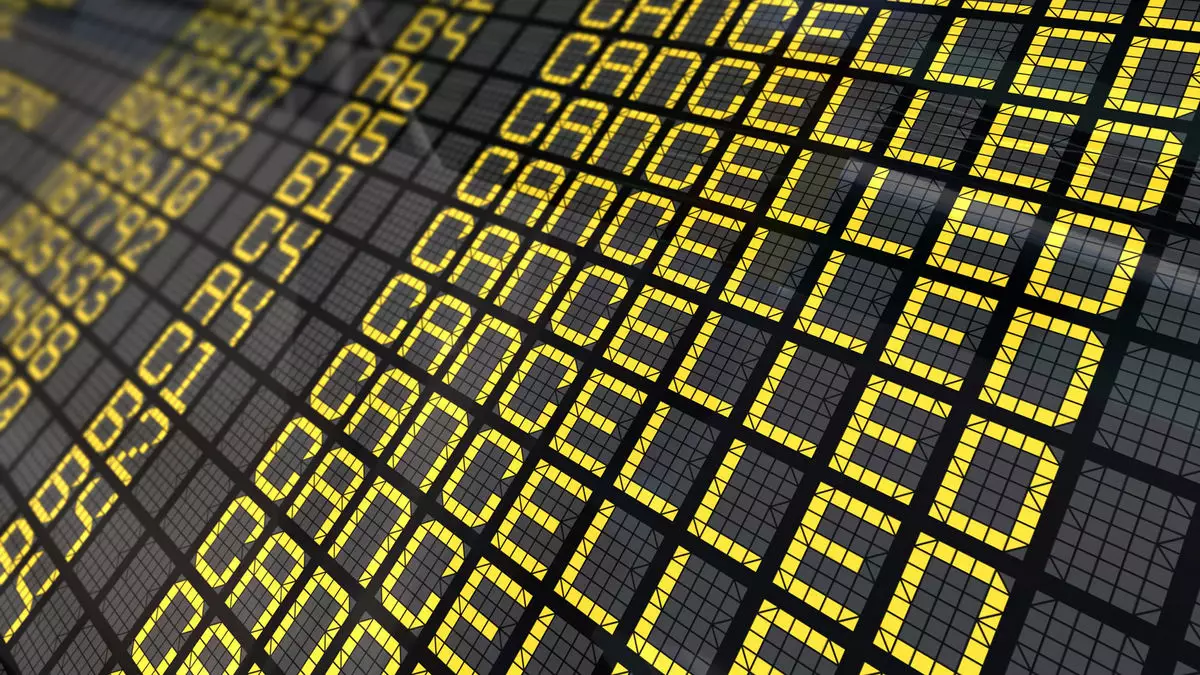In the wake of significant administrative changes on the horizon, the discussion surrounding airline compensation policies has gained momentum, particularly with respect to how airlines should deal with cancellations and delays. The U.S. Department of Transportation (DOT) has initiated a public discourse, soliciting feedback on proposed compensation guidelines that could potentially reshape the airline industry as passengers know it. However, evaluating this proposal within the broader context of political transitions raises important questions regarding its feasibility and the potential impact on both consumers and airlines.
On December 5, the DOT announced a comprehensive review of a new proposal that would require airlines to compensate passengers directly for canceled flights or significant delays. The initial discussion centers upon a tiered compensation structure, where passengers could receive between $200 to $300 for delays ranging from three to six hours, with amounts climbing to as high as $775 for more severe cancellations or extended delays. This proposal, however, is contingent upon the delays being attributable to the airline, excluding factors such as weather disruptions.
As part of the public engagement strategy, the DOT has provided a 60-day window for commentary from stakeholders, a period that notably straddles the transition from the current Biden administration to the incoming Trump administration. Consequently, the operational landscape surrounding this proposal is steeped in uncertainty, with potential for a shift in regulatory philosophy under the new Secretary of Transportation.
The Trump administration’s forthcoming arrival is set to replace Secretary Pete Buttigieg, a strong advocate for enhanced consumer protections in air travel. Buttigieg has championed various measures aimed at safeguarding passenger rights, including more transparent refund processes and mandatory disclosure of additional fees during booking. However, as Sean Duffy, Trump’s choice for the role, steps in, the future of these passenger protection proposals may be bleak.
Mark Dombroff, an experienced aviation attorney, suggests that the changing tides in leadership may render the current compensation proposal obsolete. He posits that the advanced notice from the DOT lacks the binding nature of more formal regulatory processes and may result in little more than a passing conversation before it ultimately fades. The absence of a commitment from the Trump administration to continue on this trajectory raises further concerns among advocates of consumer protections.
Reactions to the compensation proposal have been decidedly polarized. Major airline representatives, including Airlines for America (A4A) and the International Air Transport Association (IATA), have voiced strong opposition, arguing that mandating additional cash compensation would detrimentally affect operational viability and lead to higher ticket prices for consumers. They assert that airlines are already providing adequate compensation in the form of refunds and reimbursements for significant delays and cancellations.
Contrariwise, consumer advocacy groups and compensation service providers, such as Skycop and AirHelp, argue that implementing such regulations would ultimately benefit passengers and encourage airlines to improve service standards. While critics warn of increased operational costs translating into higher fares, advocates suggest the financial burdens associated with additional compensation could be minimal, potentially results in more punctual service.
This ongoing dialogue about compensation parallels existing frameworks in the European Union, where similar regulations have spurred meaningful reforms in airline customer service. Studies indicate that the enforcement of EU compensation laws has correlated with improved on-time performance among European carriers. Within the American context, failure to adopt robust compensation mechanisms may put consumer interests at a disadvantage when comparable protection is given in jurisdictions like the EU.
Research has even suggested that the costs associated with additional compensation requirements in Europe are relatively modest—estimated between $1 to $5 per flight. As such, implementing similar measures in the U.S. could be feasible without severely disrupting the airline pricing structure or accessibility. The argument that stricter regulations foster operational improvements has found some traction amongst industry stakeholders who recognize that transparency and accountability are vital in a customer-centric service model.
As we approach a period of significant transition, the future of airline compensation policies hangs in the balance. Public feedback on the current proposals will undoubtedly shape the discourse, yet the impending shift in administration adds an element of unpredictability that can drastically alter the trajectory of consumer rights in air travel. Advocates call for a fair and accountable model, similar to the one observed across the Atlantic, recognizing its potential to enhance passenger experience and operational reliability. Whether or not this will materialize, however, remains to be seen, as the evolving political landscape exerts powerful influences on regulatory priorities in the airline industry.


Leave a Reply